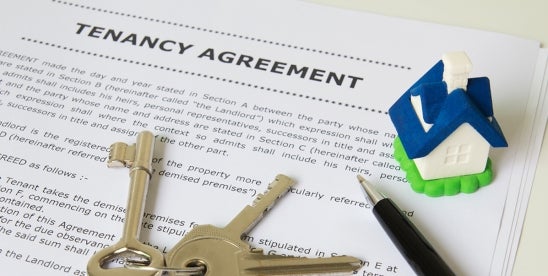
In our ongoing series of blog posts, we have examined key negotiating points for tenants in triple net health care leases. We have also offered suggestions for certain lease provisions designed to protect tenants from overreaching and unfair expenses, overly burdensome obligations, and ambiguous terms with respect to the rights and responsibilities of the parties. These suggestions are intended to result in efficient lease negotiations and favorable lease terms from a tenant’s perspective.
In our previous blog posts, we considered the importance of negotiating initial terms and renewal terms , operating expense provisions , assignment and subletting terms , maintenance and repair obligations , holdover provisions and surrender terms , tenant improvement allowances , and exclusivity, expansion and relocation provisions . This latest blog post focuses on negotiating lease terms governing default. A tenant should carefully negotiate default provisions in order to limit its exposure in the event of default, which may occur as a result of numerous factors unforeseen at the time of lease signing and often outside of a tenant’s control such as market trends, financial stability, and force majeure events.

Tenants should always seek appropriate notice and cure provisions with respect to any lease default. Most landlords will agree to a short cure period of anywhere between three to ten days for monetary defaults, and tenants can push for a notice requirement as well, at least for two to three late payments in any twelve (12) month period. The cure period for non-monetary defaults should be at least thirty (30) days after written notice from landlord specifying the nature of the default and should provide that if a cure cannot reasonably be accomplished within such thirty (30) day period, the tenant will have such longer time as is reasonably necessary as long as tenant commences to cure within the initial thirty (30) day period and diligently pursues the cure to completion.
Tenants should seek protections against accelerated rent provisions. If a landlord will not agree to remove acceleration of rent as a remedy, tenants should push for any accelerated rent to be discounted to present value. Another protection tenants should look for is an affirmative obligation on landlord to mitigate its damages.
Tenant should also push for a self-help remedy in the event of a landlord default beyond notice and cure periods afforded to the landlord. Tenants should seek to keep late fees and interest to a minimum, and even push for a waiver of late fees and interest for the first late payment. Finally, tenants should try to eliminate certain enumerated defaults so that any failure to perform a non-monetary obligation has the benefit of the thirty (30) day notice and cure provision.
These include abandonment, failure to sign an estoppel within the specified time period, failure to make a required repair, and failure to use the premises for the permitted use. If a landlord insists on abandonment being an enumerated default, tenants should carve-out an exception for temporary closures due to renovations, repairs or force majeure events such as governmental closures. In addition, tenants can request a “go dark” provision allowing the tenant to vacate or abandon the premises so long as tenant is continuing to pay rent and perform obligations under the lease.
In our next post, we will address the importance of negotiating letters of intent and the key lease terms a tenant should seek to cover in advance in order to clarify expectations and prevent protracted lease negotiations..















